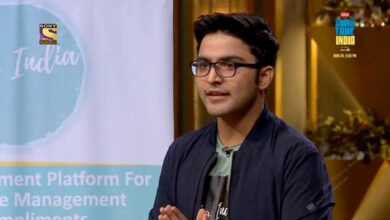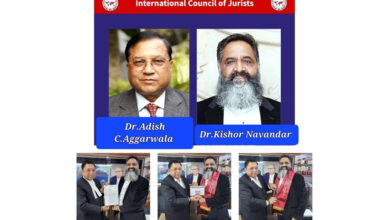
Reinventing Democracy: How Social Media Platforms Are Impacting Democracy in the 21st Century
- Mr. Narayan Singh Rao, Chief Growth Officer, PoGoSo Social
India’s journey as a bastion of democracy dates back to antiquity, rooted in the ethos of citizen empowerment and inclusive governance. From the democratic principles enshrined in ancient texts like the Rig Veda to the modern constitutional framework, India has continually adapted its democratic institutions to reflect the evolving needs of its populace. However, in the 21st century, amid a digital revolution and shifting societal dynamics, the traditional structures of democracy face unprecedented challenges.
The landscape of Indian democracy has undergone a profound transformation since gaining independence in 1947. With a burgeoning population exceeding 1.4 billion, of which nearly 1 billion are eligible voters, the imperative for robust democratic mechanisms has never been more pronounced. In parallel, technological advancements, particularly the ubiquity of the internet, have reshaped the contours of public discourse and civic engagement. Today’s citizens are not merely passive participants in governance; they seek active involvement and meaningful contributions to decision-making processes—a trend observed not only in India but also globally.
A glaring dissonance has emerged between the aspirations of 21st-century citizens and the mechanisms of governance rooted in the 20th century. The traditional model of periodic elections followed by passive engagement no longer resonates with an increasingly connected and informed populace. Instead, there is a growing clamor for a participatory democracy that transcends the confines of electoral cycles. It is within this context that India stands at a crossroads, presented with an opportunity to spearhead the renaissance of democracy in the digital age.
The fundamental question that arises is: How can India cultivate an agile democratic ecosystem that empowers citizens as active stakeholders in governance?
Presently, social media platforms such as X (Formerly Twitter) and Facebook serve as conduits for public discourse, albeit with inherent limitations. While these platforms facilitate communication, they often prioritize sensationalism over substantive dialogue, perpetuating echo chambers and exacerbating societal divisions. The consequence is a pervasive erosion of trust—a phenomenon that poses a grave threat to democratic principles worldwide.
However, amidst these challenges lie opportunities for innovation and reform. By reimagining the role of social media in democratic governance, India can harness technology to foster genuine engagement and collective decision-making. This necessitates a paradigm shift from the current landscape of digital discourse characterized by noise and polarization to one grounded in inclusivity and deliberation.
Imagine a digital platform that transcends the superficiality of “likes” and instead amplifies the collective aspirations of the populace. By leveraging artificial intelligence for sentiment analysis, such a platform could distill citizen feedback into actionable insights, thereby informing evidence-based policymaking. Furthermore, by curating diverse perspectives and facilitating moderated discussions, the platform could mitigate echo chambers and promote informed dialogue on contentious issues.
Moreover, envision a hyperlocal network that connects citizens based on shared interests and geographical proximity, fostering community engagement and grassroots activism. This platform could serve as a conduit for collaborative problem-solving, addressing pressing civic concerns such as healthcare, education, and environmental sustainability.
In the face of rampant misinformation and disinformation, a reimagined social media platform could serve as a bulwark against falsehoods, partnering with fact-checking organizations to combat the spread of fake news. Through interactive media literacy modules, users could cultivate critical thinking skills, enabling them to discern fact from fiction and participate in informed discourse.
Crucially, such a platform would transcend the realm of rhetoric, generating actionable insights from user-generated content to inform policy formulation. By aggregating and analyzing public sentiment on key issues, policymakers could gain invaluable insights into the priorities and concerns of the electorate, thereby fostering a more responsive and accountable governance framework.
Yet, the realization of this vision demands collective action and unwavering commitment to democratic values. As custodians of India’s democratic heritage, we must seize the opportunity to shape the future of governance in the digital age. By cultivating inclusive and participatory platforms, we can reaffirm the principles of democracy and ensure that every voice is heard in the public square.
In conclusion, the evolution of Indian democracy hinges on our ability to embrace technological innovation and adapt to the changing needs of society. By reimagining social media as a catalyst for democratic engagement, we can chart a course towards a more inclusive and responsive governance framework. Let us not merely envision the future of democracy but actively strive to realize it, one digital interaction at a time.
The opinions expressed in this column are of Mr. Narayan Singh Rao, Chief Growth Officer, PoGoSo Social.







